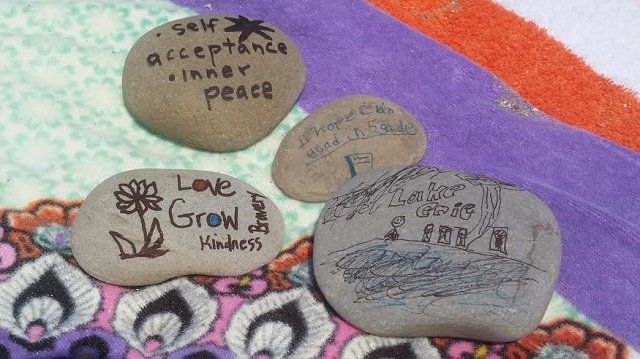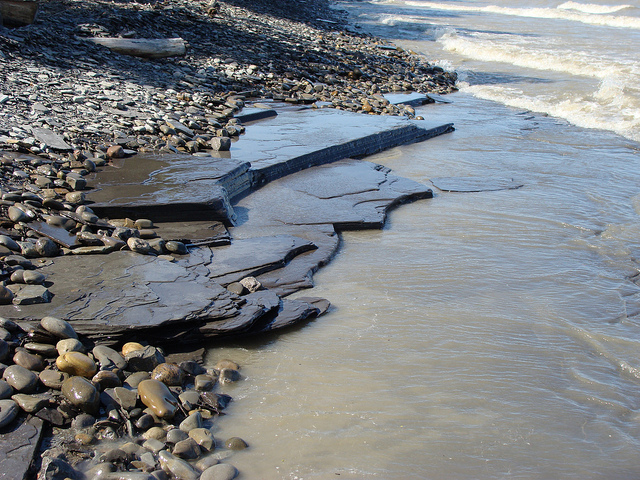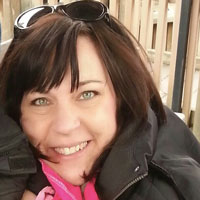When I was in elementary school, we had to write a paper on one of our heroes.
I chose my dad—40 years later, I’d chose him again.
My dad was a loving, caring, empathetic, fair, intelligent, soft-spoken man, who always had a lap to sit on, arms to hold me, words to soothe me and actions to motivate me.
My father advised me on dating. He cheered me on from the bleachers at my track meets and tennis matches. He’d car-pool my friends and I around and would slip me a 20 when my mother wasn’t looking.
I knew he always had my back.
When I was divorced with two very young children, he was my support—my lifeline. He helped me raise them, often watching them for me so that I could work. Getting them off of the bus was his favorite—he loved the ritual of hearing about their day.
My dad loved them unconditionally—he spoiled them rotten and enjoyed the hell out of being their Pop.
And then my father was diagnosed with lung cancer.
He could not help us anymore. It was our turn to figure things out. My children and I would take him to his doctor appointments, run errands for him, and sit with him when he was down. We made sure to take him out to his favorite tavern, where everyone knew his name.
My inner-mantra became, “I can’t.”
As I’m jamming his wheelchair into the back of my Prius—with the kids in the back seat, in 80-degree heat and already running 15 minutes late—I told myself, “I can’t.”
Packing up my childhood memories, I said to myself, “I can’t.”
Fighting with my siblings, I cried, “I can’t.”
Holding my children while they cried with me, I decided, “I can’t.”
My sister and I would take turns watching my mother, who at this point was flooding the bathrooms and leaving burners on, as well as caring for our ailing father.
“This is family, this is what you do for family,” I would tell my kids when they complained.
Later that night, alone, I’d tell myself, “I can’t.”
My children learned to enjoy their time with him and would fight over who got to wheel him in his wheelchair. He was so sweet when they inevitably rammed his foot into a wall or caught the foot rest on closing elevator doors.
This is what families do. This is unconditional love. It was our turn to nurture him and help him feel safe, as he did for us for so many years.
My children saw the worst of it, and it was so confusing and upsetting to them. I could barely deal with the daily reminder of their pain and suffering—how was I going to help them wrap their little heads around this?
“I can’t.”
I received a phone call from the hospital nurse, and she told me my dad wanted me and the kids to come—now. We drove to the hospital in silence and in blizzard conditions, knowing this was it. We walked into his hospital room, stood by the side of the bed, and we each kissed him on the forehead. He opened his eyes briefly and then the machines started beeping and the trauma team arrived.
When my father died, I felt the deepest sadness I had ever felt. I felt so alone and scared. Two years later, I still reach for the phone to call him when Trump says something stupid or when one of my kids does something amazing.
The first year after his death, I was just going through the motions of life. I was so burdened by the loss. I was there for my children in that I clothed them, got them to school, helped with their homework and fed them—but I was not present. And they needed me to be present.
My heartbreak was immense, and I needed to help my little ones. I’d reach for the phone to ask him, only to realize I had to figure this one out on my own.
As I sat on my patio one beautiful day, I realized that I had to do something. Take action. Be present in my grief, so that I could help my children—and myself, for that matter. It was that day I decided to stop being so shackled with sorrow and to start celebrating my father. And at that very moment, I heard myself say, “I can.”
My father loved to work in the yard, and he enjoyed admiring his gardens and humming bird feeders—and especially watching the kids play from his Adirondack chair on the porch. That day on my patio, we spotted a yellow butterfly. This butterfly spent the day with us—gone one minute, then fluttering around us the next.
I asked the kids, “Do you think that is Pop?”
“Yes!” they exclaimed.
We decided that it was Pop—in spirit—and he was telling us something. I told them how butterflies symbolize new beginnings and departed souls resting in peace. Pop wanted us to stop being sad and start living our lives—to move on from the grief.
This saved us from our all-consuming sadness, confirming again that I can do this. I can get through this. I can help my children learn to grieve.
We talked about him frequently—his funny little sayings, and my son says he can still hear him say: “Well, hello there, Buddy Boy!”
We began to laugh again! The kids and I worked on a grief workbook and talked about death as a part of life—and grief and sadness as being a part of life too. I began to realize that I am doing this, and we are going to be okay.
We decided that summer that we would visit one of Pop’s favorite places—Lake Erie, where we all had shared such fond memories. I wanted to keep his memory alive in my children’s hearts and minds and celebrate the amazing life my father led.
We began to collect beautiful rocks from the base of the lake and decided that we would make a rock garden for Pop in our yard. We would collect as many rocks as we could fit into our pails and bring them home and place them in our memorial garden. This helped us actively and productively move through the sadness.
Being mindful became important, so meditation and yoga allowed me to feel the power of the intentions that we used in our sessions. On our second annual trip to the lake this past summer, I thought we all should set an intention for ourselves and offer it to the universe!

We each wrote an intention on the most beautiful rocks we could find.
I wrote: Bravery, Love, Growth and Kindness
My sister wrote: Inner Peace and Self-Acceptance
My son wrote: Lake Erie
And my daughter wrote: I hope I do well in the 5th grade.
With rocks in hand and our intentions in our hearts, we swam out as far as we could and threw them into the water, clapping and cheering for each other. It was a celebration of our love for Pop. It was a celebration knowing—yes—yes I can. And I did.
The lake ritual and the memorial garden all helped my tribe move forward. We all must come to a point where happiness becomes our new intention—where we accept that death and struggle are a part of our journey.
Embrace the journey. Fight for happiness.
We choose to live whole again. We choose to honor the memories of those we love, without letting the sadness of their loss overwhelm us. The lake ritual helped our family to celebrate my dad and his impact on our lives.
Our rituals can give us peace.
.
Author: Corinne Milentijevic
Editor: Yoli Ramazzina
Photo: Flickr/jimmy thomas; author’s own.







Read 2 comments and reply